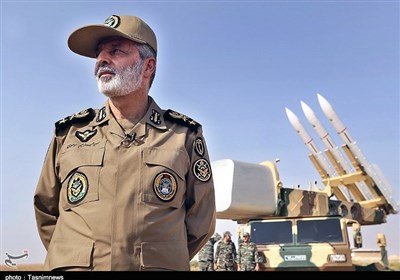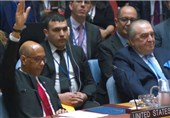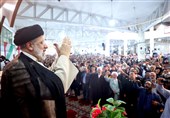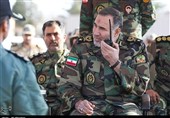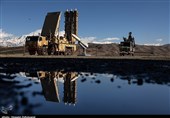US Presidents Responsible for Failed Policies in Mideast: Analyst
TEHRAN (Tasnim) - Jiri Valenta, a distinguished US analyst and scholar of political science, blamed the American presidents, both Democrats and Republicans, for the “misguided policies” of Washington in Iraq, Libya and Syria that led to the rise of the ISIL terrorist group.
In an e-mail interview with the Tasnim News Agency, Valenta commented on the threat of terrorism in the contemporary world.
Dr. Valenta has served as a coordinator of Soviet and East European Studies at the US Naval Postgraduate School for a decade and consultant to four US presidents.
Author of many books and articles, he is a longstanding member of the US Council on Foreign Relations.
He is director of the Institute for Soviet and East European Studies (ISEES), and professor of political science at the Graduate School of International Studies at the University of Miami.
Here is the full text of his interview.
Tasnim: As you know, France was recently the victim of terrorist attacks carried out by the extremists. Why do you think there are efforts to draw a link between those incidents and Islamophobia?
VALENTA: First, most people understand that there are moderate, peace-loving Muslims and they are in the majority. Surely one of the heroes of the day was a Muslim worker in the Paris Kosher supermarket that ushered shoppers into a freezer so that they could not be killed. “Je suis Muslim.” No one is trying to foment “Islamophobia,” as you call it. The anger is directed not towards all Muslims, but only towards the terrorists. They are the people who believe that only they have the right to inhabit this planet and that everybody else deserves to be shot, beheaded, crucified, raped, enslaved or mutilated. Like our president, you refer to them as “extremists,” but the proper term in use is “terrorists.”
How can you expect us not to despise and fear groups like al-Qaeda, ISIS, and Boko Haram that financially support and encourage acts of terror by sleeper cells in Europe and perhaps America? We do question why moderate and peace-loving Muslims are not speaking out more loudly against the radicals and organizing large demonstrations against them. One must assume they are frightened of them.
Tasnim: Over the past years, certain Western countries paved the way for the extremists to join terrorist groups in the Middle East, and even armed and funded those groups. Do you think such backing for the extremist groups has had any impact on the spread of acts of terror in the West?
VALENTA: If I understood you correctly this is a good question. Thirty years ago, traveling to the Khyber Pass and Peshawar in Pakistan, I was outspoken in my criticism of the Soviet intervention and occupation of Afghanistan. My country also helped the Mujahedeen with arms and supplies. My articles were published in Turkish and Arabic. I had very good ties with the moderate Mujahedeen’s who saw Soviet imperialism as the main threat. I even invited one leader to lecture at the University of Miami. His visit was supported by the Jewish community, concerned then about Soviet expansionism.
Things changed, and the Mujahedeen turned against us as we learned in the September 11, 2001 attack on our homeland. Naturally, the subsequent US intervention and victory against the Taliban and al-Qaeda in Afghanistan was justifiable punishment and self-defense. But now, my wife, Leni, and I, in a major study, are re-evaluating the impact of other US military interventionism in the Middle East.
We view both Democratic and Republican presidents as responsible for misguided policies in Iraq, Libya and Syria that encouraged the rise of ISIS.
Without going into details, our analysts and leaders believed these countries were ready for “Arab Spring” democratic transformation. Mea Culpa! I plead guilty too, as in the Washington Times, I was perhaps the first to use the term “de-Bathization” for Iraq. But Iraq, was more complex than we anticipated. Creating this country, Churchill put together Shiites, Sunnis and Kurds figuring perhaps that they could live and work together like the Christians and Protestants who once were at each other´s throats.
But it was naïve to think we could imbue the Iraqis with our values and political culture. Thus it would have been better to overthrow Saddam Hussein with a small force and then withdraw at the earliest convenience. We should have helped to replace him with an enlightened and strong military figure presiding over a junta consisting of senior representatives of all three ethnic groups. Such a leader could have possibly established law and order. De-Nazification and nation-building were good policies to pursue in a European country like Germany, with some Western values. It was unworkable in Iraq.
The terrorists were encouraged by our mistakes and misunderstandings. Brent Scowcroft, President George H. Bush’s former National Security Advisor, warned us not to engage in nation building and he was right. ISIS is a partly a product of this misguided policy. Then, Obama went to another extreme. He pulled out of Iraq without leaving any small force that would train native troops and help maintain stability.
Tasnim: Paris attacks drew global condemnation. But as you know, the attack on Charlie Hebdo's office was a reaction to the insulting cartoons published by the magazine. However, the satirical weekly has published such cartoons again. What do you think of it?
VALENTA: I am not in favor of religious provocation of any kind. I do not believe in insulting heads of foreign states or religious figures. One should use civility and not hurt national pride. However, there is no way for us to look at the massacres of the Charlie Hebdo editorial board and the Kosher supermarket shoppers as anything but deplorable and shocking murders. They were counterproductive and hurt the Muslim cause in the world. Charlie Hebdo was a small, satirical journal with 20,000 copies weekly. It was not a threat.
Tasnim: What is your opinion about Islam’s opposition to extremism?
VALENTA: I was fortunate to learn about the positive side of Islam from two of my colleagues at the US Naval Postgraduate School, Professor Kamal Said of Baghdad and one of the best experts on Afghanistan, Professor Ralph Magnus. I studied the Koran with Said and I recognized that you can also find a message of peace and tranquility in it. The Koran can be interpreted different ways and so can the principle contact of “Jihad.” It has different meanings – Holy war, but also spiritual renewal. I do hope that the Muslim religion will go through a similar evolution as Judaism and Christianity and will be modernized.

